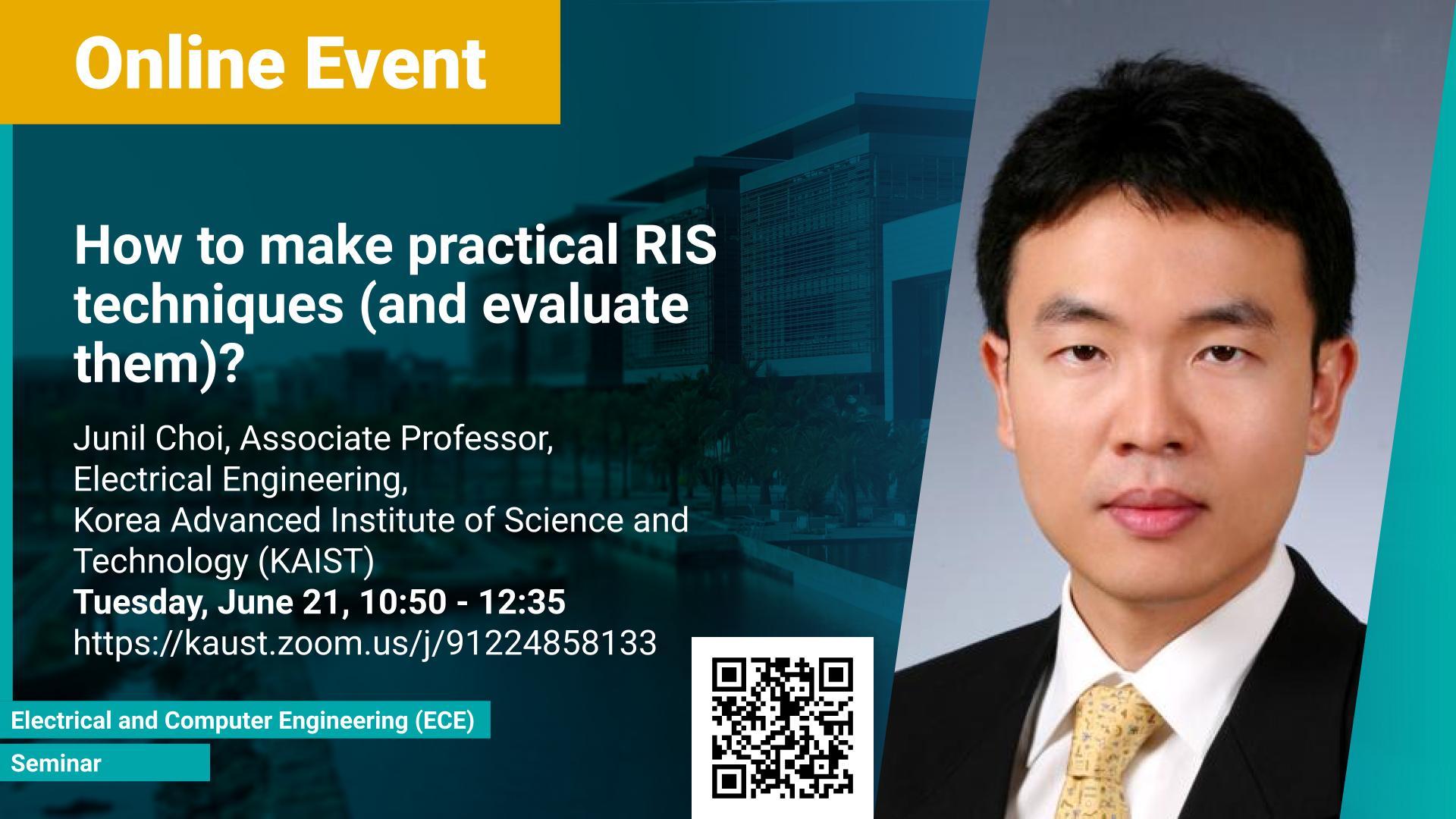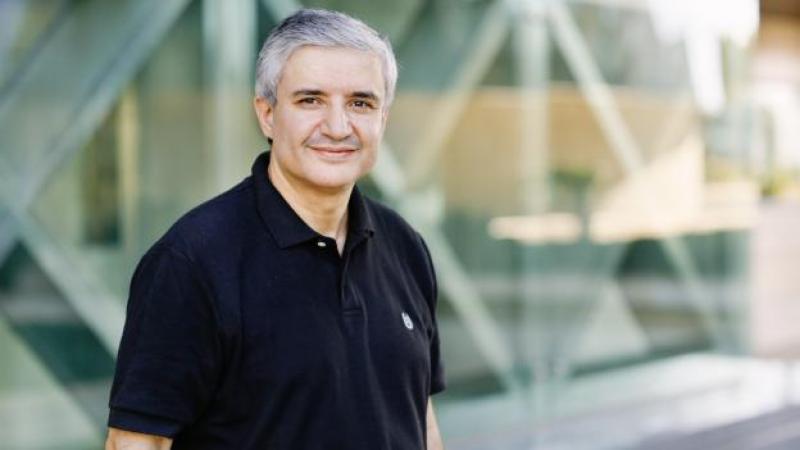Event Start
Event End
Location
Abstract
Recently, reflecting intelligent surface (RIS) has been proposed as an innovative technology that can significantly improve the performance of wireless communication systems through the use of low-cost passive reflecting elements. There are two important issues to exploit the full benefit of RIS: 1) develop joint active beamforming (at the base station) and passive beamforming (at the RIS) techniques with high performance and low complexity, and 2) proper channel estimation techniques for RIS systems. Although effective in terms of performance, most of previous beamforming designs and channel estimation techniques for RIS systems have relied on complicated optimization methods, which are difficult to implement in practice. In this talk, I will first explain low-complexity, non-iterative, and near-optimal RIS joint active and passive beamformer designs for both narrowband and wideband assuming full channel information. Then, I will explain several practical channel estimation techniques for RIS systems. Lastly, I will introduce WiThRay, a versatile 3D wireless communication simulator based on ray-tracing developed by our lab, that can be used to evaluate different RIS techniques for various environments.
Brief Biography
Junil Choi received the B.S. (with honors) and M.S. degrees in electrical engineering from Seoul National University in 2005 and 2007, respectively, and received the Ph.D. degree in electrical and computer engineering from Purdue University in 2015. He is now with the school of electrical engineering at KAIST as an (Named) Ewon Associate Professor.
From 2007 to 2011, he was a member of technical staff at Samsung Advanced Institute of Technology (SAIT) and Samsung Electronics Co. Ltd. in Korea, where he contributed to advanced codebook and feedback framework designs for the 3GPP LTE/LTE-Advanced and IEEE 802.16m standards. Before joining KAIST, he was a postdoctoral fellow at The University of Texas at Austin from 2015 to 2016 and an assistant professor at POSTECH from 2016 to 2019. His research interests are in the design and analysis of massive MIMO, mmWave communication systems, distributed reception, and vehicular communication systems.
Dr. Choi was a co-recipient of the 2021 IEEE Vehicular Technology Society Neal Shepherd Memorial Best Propagation Award, the 2019 IEEE Communications Society Stephen O. Rice Prize, the 2015 IEEE Signal Processing Society Best Paper Award, and the 2013 Global Communications Conference (GLOBECOM) Signal Processing for Communications Symposium Best Paper Award. He was awarded the Michael and Katherine Birck Fellowship from Purdue University in 2011, the Korean Government Scholarship Program for Study Overseas in 2011-2013, the Purdue University ECE Graduate Student Association (GSA) Outstanding Graduate Student Award in 2013, the Purdue College of Engineering Outstanding Student Research Award in 2014, the IEEE ComSoc AP region Outstanding Young Researcher Award in 2017, the NSF Korea and Elsevier Young Researcher Award in 2018, and the KICS Haedong Young Researcher Award in 2019. He is an editor of IEEE Communications Letters, IEEE Open Journal of the Communications Society, and Frontiers in Communications and Networks.

